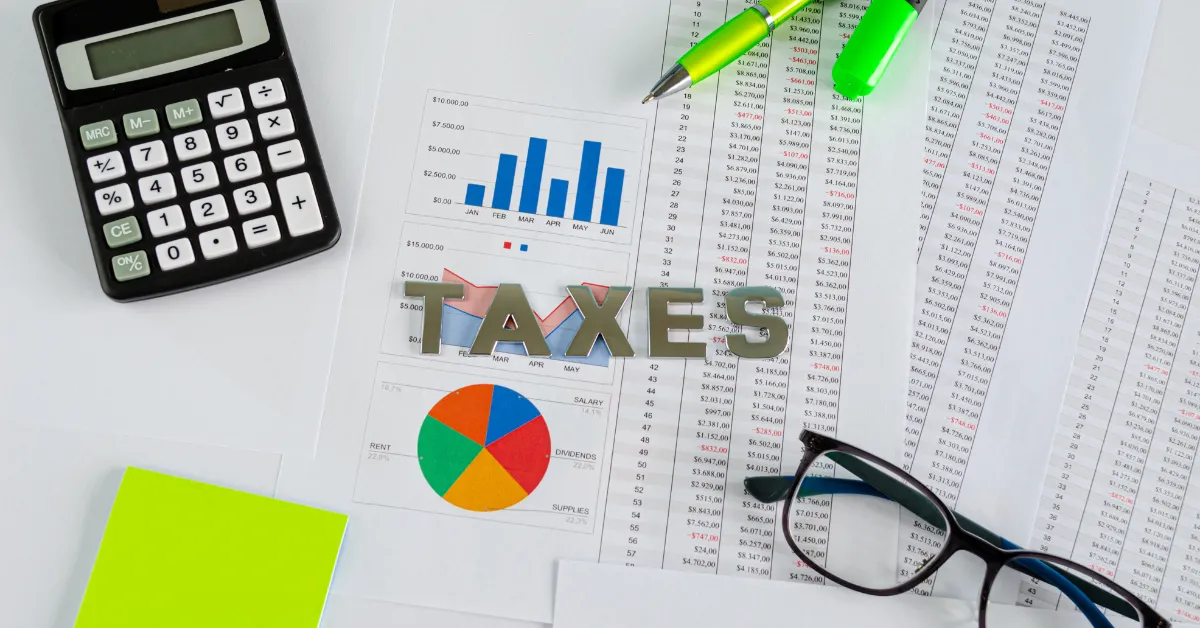Debt Settlement in New Hampshire
Debt Settlement Experts
Are you drowning in debt and overwhelmed by constant stress? At Second Start Financial, we understand the challenges that come with excessive debt, and we’re here to help. We know that many hardworking New Hampshirites are struggling to keep up with credit card bills, medical expenses, and other unsecured debts, often due to circumstances beyond their control. That’s why we’re dedicated to providing personalized debt settlement services to help you achieve financial freedom. Our experienced professionals will work with you every step of the way to create a customized plan that fits your unique needs and goals. With our help, you can break free from the burden of debt and start building a brighter financial future.

How Professional Debt Settlement
New Hampshire Can Help You

Avoid Bankruptcy
Prevent the long-term consequences of bankruptcy by settling your debts instead.

Lower Balances
Negotiate with creditors to reduce your outstanding balances and pay less than you owe.

One Monthly Payment
Simplify your debt repayment process by making a single, affordable monthly payment.

Stop Collections
End harassing calls and letters from collection agencies by enrolling in a debt settlement program.

Tax Benefits
Understand the potential tax advantages of settling your debts for less than the full amount.

Become Debt-Free
Achieve financial freedom faster by resolving your debts through professional debt settlement services.

Our Proven Debt Settlement Process
At Second Start Financial, we follow a proven debt settlement process to help you achieve the best possible results. Here’s what you can expect:
1. Free Consultation: We’ll review your financial situation, explain your options, and determine if debt settlement is right for you.
2. Personalized Plan: We’ll create a customized debt settlement plan based on your unique circumstances, including your debt amount, income, and goals.
3. Dedicated Account: You’ll open a special account and make monthly deposits, which will be used to settle your debts.
4. Expert Negotiations: Our skilled negotiators will work with your creditors to achieve the lowest possible settlement amounts.
5. Debt Resolution: Once a settlement is reached, we’ll facilitate the payment to your creditor and ensure the debt is properly resolved.
BLOG
Our Latest Blogs

Tax Implications of Debt Settlement
Settling your debts for less than you owe seems like a great financial move. But don't overlook the tax man when weighing the pros and cons of debt settlement. The IRS views settled debt as income, which could leave you with an unexpectedly high tax bill.
Understanding the tax implications is crucial before pursuing debt settlement. With proper planning, you may be able to minimize or avoid taxes on settled debt.
The IRS Considers Settled Debt As Taxable Income
When a creditor or debt collector agrees to let you pay a lump sum that's less than your total owed balance, the IRS considers the amount forgiven as income. You essentially earned money by settling the debt.
For example:
You owe $10,000 on a credit card
You negotiate a settlement to pay $4,000
The credit card company writes off the remaining $6,000 balance
The IRS sees that $6,000 as income you must report
These tax rules apply to most types of settled debt, including:
Credit cards
Medical bills
Personal loans
Payday loans
Private student loans
Certain exceptions exist, mainly for mortgage debt relief under the Mortgage Forgiveness Debt Relief Act. But for the most part, expect to pay income tax on any amount forgiven from a settlement.
When Do You Have to Pay Taxes on Settled Debt?
The tax timing depends on when the creditor formally agrees to forgive the debt:
If forgiven in the same year paid, it's taxable that year
If forgiven after settling in a previous tax year, it's taxable in the year forgiven
For example:
You settle a credit card in 2022 for $5,000 and the remaining $3,000 balance is forgiven in 2023. You must claim the $3,000 as income on your 2023 tax return.
The 1099-C form creditors send details of the timing and amount forgiven. Save this form to report accurately on your tax return.
How Is Forgiven Debt Taxed?
Settled debt gets treated as ordinary income, just like your wages. So expect to pay regular federal and state income tax on the forgiven amount, based on your tax bracket.
You'll also owe the 15.3% self-employment tax on the income since it didn't come from a job. The only saving grace is that settled debt doesn't count as earned income for Earned Income Tax Credit (EITC) purposes.
Here’s how it could add up to $5,000 of forgiven debt:
Federal income tax: $650
State income tax: $300
Self-employment tax: $765
Total extra taxes owed: $1,715
That turns a $5,000 settlement into a $3,285 savings, at most. Still, decent savings, but tax considerations make the benefit less attractive.
Check Out: Top Debt Settlement Companies 2023
Strategies to Avoid Taxes on Settled Debt
You aren't necessarily stuck paying taxes on debt settlement. Savvy planning can eliminate or reduce the tax bite:
Negotiate with Creditor Upfront
If the creditor doesn’t issue a 1099-C, the IRS has no way to know about the settled debt income. When negotiating debt relief, ask the creditor not to report it. Get any no-1099 agreement in writing.
This works best with smaller, individual creditors, like doctor’s offices or retailers, versus big banks. But any non-reported settlement means avoiding taxes.
Claim the Insolvency Exclusion
Tax filers can exclude forgiven debt from taxes if they were insolvent at the time. Insolvency means your total debts exceed the fair market value of your assets. You can claim the insolvency exclusion up to the amount you were insolvent.
To qualify, submit IRS Form 982 along with proof of your insolvency, like a balance sheet, when filing your taxes. If approved, you can exclude part or all the settled debt from taxes.
Negotiate Before Default
Another exception exists for debt settled before it ever goes into default. That’s because the tax laws refer to forgiveness of debt, implying you first defaulted. Settling accounts promptly before they become delinquent avoids this scenario.
Again, get written confirmation from the creditor that your timely settlement satisfies the debt. Paying debt under agreed terms, even at a discount, means there’s no taxable forgiveness.
Learn: Why Debt Settlement Outshines Credit Repair
Weighing Debt Relief vs Tax Burdens
Settling debt often makes solid financial sense despite the tax consequences. You eliminated high-interest debt for a fraction of what you owed. But don't underestimate the tax impacts.
With smart timing and negotiation tactics, you may avoid extra taxes and keep all your settlement savings. Understanding the nuances of debt settlement taxation allows leveraging this option without unnecessary tax burdens.
Debt FAQ's
What is debt settlement?
Debt settlement is a process where a debtor and creditor agree to settle a debt for less than the full amount owed. This can help the debtor pay off their debt more quickly and affordably than continuing to make minimum payments.
How does debt settlement work?
Our debt settlement program works by negotiating with your creditors to settle your debts for less than the full amount owed. You make regular payments into a savings account, which we use to negotiate with your creditors on your behalf. Once a settlement is reached, you make a one-time payment to settle the debt.
Will debt settlement affect my credit score?
Yes, debt settlement may have a negative impact on your credit score. However, if you’re already struggling with high levels of debt, your credit score may already be affected. Our goal is to help you become debt-free as quickly and affordably as possible, so you can start rebuilding your credit score.
What types of debt can be settled?
Generally, unsecured debts like credit card debt, medical bills, and personal loans can be settled through our debt settlement program. However, certain types of debt like student loans and tax debt cannot be settled through debt settlement
How long does debt settlement take?
The length of the debt settlement process can vary depending on your specific financial situation and the amount of debt you have. However, most of our clients are able to become debt-free in 24-48 months.
TESTIMONIALS
A few years ago, my husband and I enrolled in this program, and it was a lifesaver. It truly helped us out of a difficult situation.
Claire Martinez
I couldn’t have hoped for a better solution to help me with my debt. Second Start Financial has exceeded my expectations and helped me pay off my debt sooner than I anticipated. The approval process was quick and painless, and now I’m on my way to regaining control of my life and improving my creditworthiness. Thank you so much!
Samantha Bailey







At Second Start Financial, we are dedicated to helping you regain control of your life. Our mission is to provide you with effective debt relief solutions that address your unique financial situation.
At Second Start Financial serves the following States only:
Alabama | Alaska | Arizona | Arkansas | California | Colorado | Florida | Georgia | Idaho | Illinois | Indiana | Iowa | Kentucky | Louisiana | Maryland | Massachusetts | Michigan | Mississippi | Missouri | Montana | Nebraska | Nevada | New Jersey | New Mexico | New York | Ohio | Oklahoma | Pennsylvania | South Dakota | Tennessee | Texas | Utah | Virginia | Wisconsin
Disclaimer:
Second Start Financial Inc is not a Broker or Lender. The role of Second Start Financial is to connect potential borrowers with lenders and financial service providers. Second Start Financial does not provide credit offers or solicit lending. The website and its operators solely offer a connection/matching service and are not agents, representatives, or brokers of any lender. They do not make credit decisions and do not charge potential borrowers for any loan or product.












